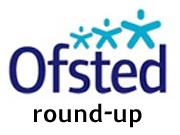Ofsted round-up – This week: Two London providers are inspected

London Borough of Waltham Forest, London
Summary of grades awarded:
Effectiveness of provision Good: Grade2
Capacity to improve: Good: Grade 2
Achievement and standards Satisfactory: Grade3
Quality of provision Good: Grade2
Leadership and management Good: Grade2
Equality of opportunity Contributory grade: Good: Grade2
Sector subject areas:
Health, public services and care Good: Grade 2
Literacy and numeracy Satisfactory: Grade 3
Community learning Good: Grade 2
Family learning Good: Grade 2
The London Borough of Waltham Forest’s (LBWF) Community Learning and Skills service (CLaSS) is funded by the North London LSC to provide adult and community and work-based learning In 12 sector subject areas (SSAs). Currently, approximately 3,534 adult and community learners and 94 work-based learners attend the provision. In 2007/08, approximately 9,300 learners enrolled, with half on non-accredited courses.
Ofsted found the quality of the provision to be good and noted that CLaSS responds effectively to providing programmes and activities to meet the needs of people in the borough. CLaSS provide satisfactory value for money and meet Government requirements for safeguarding. Although many venues are equipped with good technology for teaching, some accommodation is poor.
CLaSS demonstrates a good capacity to make further improvement and has maintained is strengths and improved provision such as work-based learning significantly since the previous inspection. Ofsted found the self-assessment process to be thorough, self-critical and accurate. It involves all staff and includes the views of learners and a wide range of partners. Key strengths include, high achievement in work-based learning, much good teaching and learning, broad and responsive provision to meet local needs, particularly good strategic planning, good partnership working and successful initiatives to promote inclusion.
Achievement and standards are satisfactory with achievement being high for the small proportion of learners in work-based provision. In 2006/07 and 2007/08 entry to employment progression rates are consistently around 70% and overall apprenticeship success rates in 2007/08 are high at 86%.
London Electronics College, London
Summary of grades awarded:
Effectiveness of provision Good: Grade 2
Capacity to improve Good: Grade 2
Achievement and standards Good: Grade 2
Quality of provision Satisfactory: Grade 3
Leadership and management Good: Grade 2
Equality of opportunity Good: Grade 2
Sector subject areas:
Engineering Good: Grade 2
Information and communication technology Good: Grade 2
Formed in 1982, London Electronics College (LEC) initially provided training for post office managers in telegraphy, followed by wireless Morse code for Marine radio officers. Subsequently, the provision has changed to reflect the demands of the electronics and telecommunications industries. LEC contracts with London central LSC for the funding of those training. LEC also provides a range of NVQ’s in I.T, electronics engineering and engineering maintenance. At the time of the inspection, LEC had registered 91 learners on engineering programmes and 57 on ICT courses.
Ofsted found the overall effectiveness of LEC to be good. Courses meet the needs and interests of learners well and learners receive very good support. LEC offers particularly effective support to encourage learners with significant barriers to learning to complete their qualification and progress to higher qualifications and employment.
LEC’s capacity to improve is good and recent changes have had a favourable impact on the provision. Success rates are high and the self-assessment process is sound. LEC makes appropriate use of staff and learner feedback to improve the provision. The company has developed an appropriate action plan through the self-assessment process and although some aspects of the quality improvement system are insufficiently developed, LEC has made significant improvements since the previous inspection. Key strengths include, high and improving success rates, good development of learners’ skills, good take-up of additional qualifications, particularly strong support for learners, good strategic management, good curriculum management and very effective arrangements for social inclusion.
Achievement and standards are good with success rates being high and improving. Success rates on all programmes have improved significantly since the previous inspection and are generally well above national averages. Success rates on the BTEC national and introductory certificates and NVQ Engineering Maintenance are 100%. Success rates on most ICT courses are high and show a three-year improving trend.
Natalie Hailes






Responses